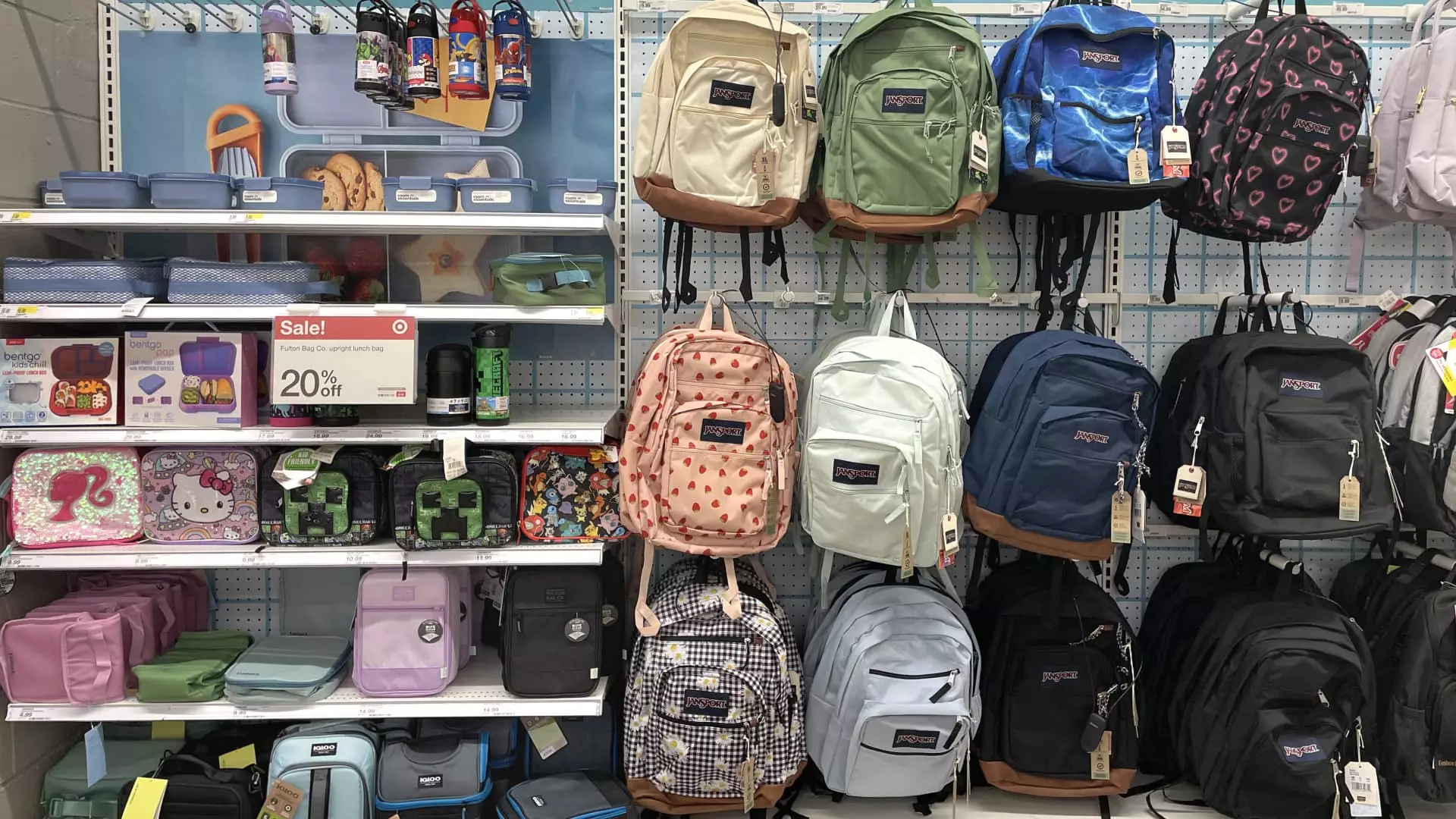Despite official reports suggesting that inflation is easing, the economic landscape remains riddled with turbulence that directly impacts American families. The notion that the economy is recovering comfortably is, at best, an optimistic illusion. Beneath the surface, new tariffs and policy decisions threaten to destabilize household finances, making everyday essentials a growing burden. For many parents, the back-to-school season is no longer just about preparing their children for an academic year; it’s become a gamble—balancing costs, shrinking budgets, and looming economic uncertainties. The latest data from Deloitte highlights a worrying trend: families are reducing their spending, even when prices are on the rise.
The core issue lies in the setting of tariffs that appear disconnected from the realities faced by ordinary Americans. While politicians tout new trade policies as tools for national strength, they often overlook the collateral damage—rising prices on school supplies, clothing, and other essentials that stretch household budgets thin. As these tariffs threaten to elevate product costs further, parents are caught in a squeeze between maintaining their children’s educational preparedness and safeguarding their financial stability.
Tariffs: A Double-Edged Sword That Doesn’t Benefit Everyday Americans
The Trump administration’s tariff plans aimed to leverage economic leverage on foreign trading partners, but the ripple effects have left many consumers caught in the crossfire. Although tariffs are delayed in the short term, the shadow they cast is far from lifted. Experts warn that once these tariffs are fully implemented, consumer costs will inevitably climb, often hitting those least able to afford it hardest. Consumer economist Jack Kleinhenz cautions that the anticipated inflationary spike resulting from heightened tariffs could erode purchasing power, especially during pivotal shopping seasons like back-to-school.
What makes this situation particularly troubling is the dissonance between economic policy and the lived realities of families. Tariffs, which primarily serve the interests of political agendas and trade negotiations, risk becoming a tax on the middle class. Their effects will likely deepen economic divides, making it more difficult for lower- and middle-income families to provide parity in educational supplies. It’s an unintentional, yet profoundly impactful consequence that challenges the very fabric of equal opportunity in early education.
The Psychological Toll of Economic Instability on Families
The economic strain manifests not just in decreased spending, but also in heightened anxiety and shifting consumer behaviors. According to recent surveys, a growing number of parents are making pragmatic, yet distressing choices—shop at cheaper stores, switch brands, or cut non-essential expenses altogether. The tendency to buy early—as indicated by an increase in pre-August shopping—reflects a battle against price hikes, exemplifying a sense of urgency driven by economic apprehension rather than genuine need.
This behavior signals more than just prudent spending; it reveals a climate of insecurity that alters the American consumer psyche. Parents, typically regarded as the primary custodians of their children’s futures, are being pulled into a cycle of resourcefulness born out of necessity. Instead of focusing on educational quality or extracurricular opportunities, their attention shifts to merely keeping the financial wolves at bay. The consequence is a potential narrowing of opportunities for students, especially those in underprivileged communities, where every dollar saved is a step away from access to resources that foster academic success.
Impacts on Social Equality and Future Opportunities
The austerity measures pushed by economic uncertainty threaten to deepen existing inequalities in education. When families cut back on non-essentials or switch to less preferred brands, the implications stretch beyond store shelves. It affects children’s access to quality supplies, clothing, and even extracurricular activities that promote growth and social integration. The startling increase in parents’ willingness to switch brands signals a growing desperation—highlighting how economic policy decisions echo in classrooms and playgrounds.
This erodes the promise of equal opportunity, transforming what should be a level playing field into a battleground of resourcefulness and circumstance. The core principles of American education—merit, potential, and fairness—are vulnerable when economic policies disproportionately burden those already struggling. If policymakers prioritize tariffs and trade strategies over the tangible needs of families, they risk institutionalizing a cycle of disadvantage that will persist through generations.

